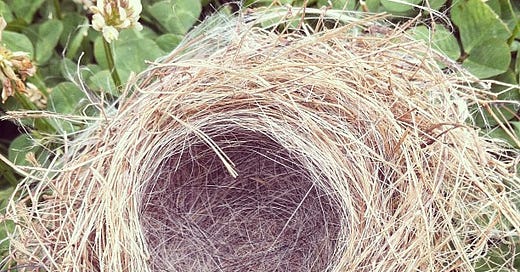Holiday Blues (or The Death of Melancholy)
On the first morning that I dropped my youngest off at nursery, I returned to the silence of an empty living room and sobbed uncontrollably. I still don’t know what I was crying about all these years later. Maybe I really missed my kids, and that it dawned on me that I wouldn’t have at least one of them keeping me company for the day, as it had been for the previous six years? Or it might have been that I had been wishing for a moment to myself for all this time and now that it had arrived, I was overcome with relief? Or was I crushed by intense guilt over that relief? I have no idea. All I know is that my body recognised a dramatic change and my mind scrambled to find a way to fit it into the story that I was telling myself.
It has become a relatively recent consensus that emotions don’t exist in a primary, physical sense. There is a surge of hormones and neurotransmitters which we then interpret as an emotion. From a purely physiological perspective, there is no telltale signature of a particular emotion, just varying states of stimulation, agitation or the lack thereof that are then slotted by the ever-trailing mind into a particular psychological pigeon hole.
Since the era of the Romantics, this act of interpretation has been seen as the main strand of the poet’s vocation, to take stock of those subtle shifts of internal weather and to borrow an image from the outside world to mirror it. The haiku masters were far more subtle, knowing the image from the outer world did its own work in mirroring or contradicting the seeming internal world of the poet. Maybe I’m dismissing those Romantics too readily? I think of Wordsworth’s lines about how the inner and outer world are ensnared within each other:
[. . .]Therefore am I still
A lover of the meadows and the woods
And mountains; and of all that we behold
From this green earth; of all the mighty world
Of eye, and ear,—both what they half create,
And what perceive; well pleased to recognise
In nature and the language of the sense
The anchor of my purest thoughts, the nurse,
The guide, the guardian of my heart, and soul
Of all my moral being.[. . .]
I didn’t break down in tears after dropping the kids off today. I felt a heightened sensitivity to the chill of the morning breeze and a sense of loss, not much greater in intensity than when I leave the house with the nagging feeling that I forgot something. Perhaps the older poets would have tagged this feeling as melancholy, or any other emotion that doesn’t seem to exist these days. Not that we don’t experience those same winsome surges as they did, more that the act of interpretation will often traipse along a different track, something a bit more clinical perhaps?
My wife has been working from home since the pandemic. Her work brings in a bigger wedge than mine so she gets the office while I plonk my Dad bod on the living room sofa and endeavour to start replying to all those emails that have arrived over the last six weeks. Maybe that was the sense of loss that hitched itself onto my psyche as I plodded home from the school gates? The loss of any further excuses for ignoring my professional responsibilities?
Did Wordsworth and Basho have a word for ‘procrastination’?




